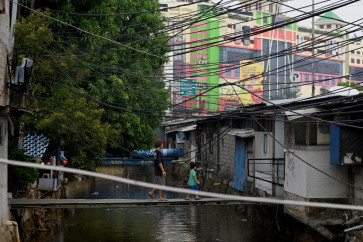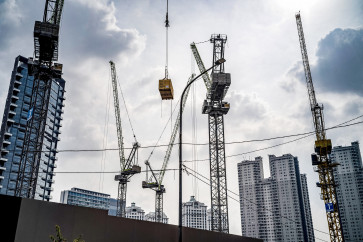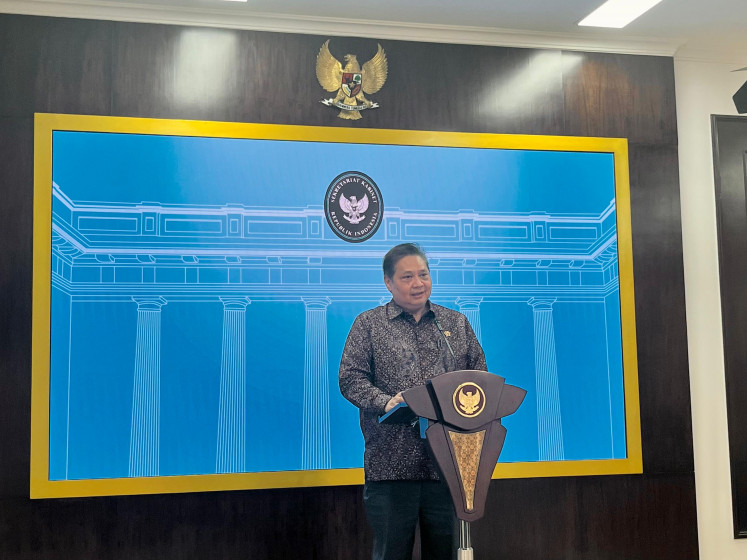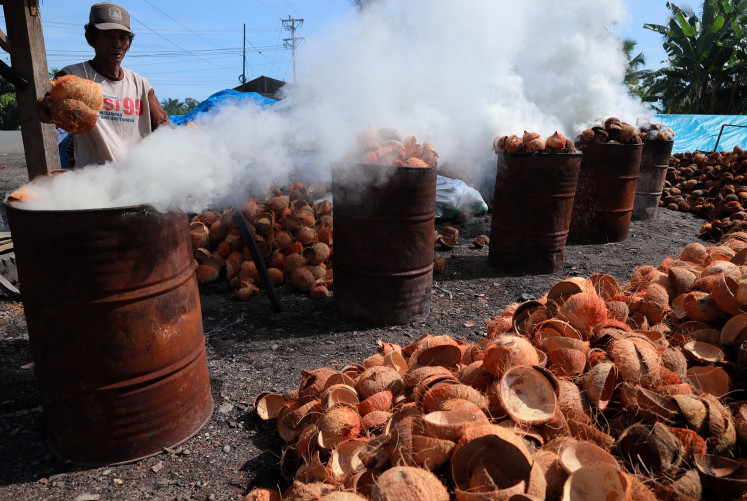Indonesian military's role in economy 'set to be phased out'
The role of the powerful Indonesian military (TNI) in the country's economy has shrunk by 80 per cent since reforms were taken to unshackle its grip - and expectations are that it will be phased out eventually, Indonesian Finance Minister Muhamad Chatib Basri said at the World Economic Forum yesterday
Change text size
Gift Premium Articles
to Anyone

T
he role of the powerful Indonesian military (TNI) in the country's economy has shrunk by 80 per cent since reforms were taken to unshackle its grip - and expectations are that it will be phased out eventually, Indonesian Finance Minister Muhamad Chatib Basri said at the World Economic Forum yesterday.
Touching on a sensitive subject that critics say has been shrouded in opacity, Chatib Basri insisted that progress has been made in the right direction although, he conceded, the military continues to have "some involvement" in the economy.
The TNI was a dominant player in the economy during the strongman era of president Soeharto, a former general, gaining favoured access to contracts and controlling nationalised companies.
After Soeharto was forced from power in 1998, the government began to divest the military of its business interests by liquidating its companies or turning them over to the state.
But many senior military officers are believed to continue holding side businesses. And while the TNI is not supposed to own businesses directly, it holds indirect stakes through foundations and cooperatives.
Speaking to The Straits Times on the forum's sidelines, Chatib also touched on the presidential campaigning heating up in his country.
The next Indonesian leader, he said, will need to be open and friendly to foreign investors.
The two presidential candidates, Joko Widodo and Prabowo Subianto, have struck nationalistic tones in their manifestos, calling for, among other things, self-sufficiency in food and energy.
Chatib said that being closed off to foreign investments is untenable.
"For Indonesia to grow 1 per cent, you need 5.3 per cent of investments over the GDP (gross domestic product). So, for 7 per cent growth, you need 37, 38 per cent in investments."
He noted that Indonesia's domestic savings hover at only 32 per cent, meaning a shortfall of about 6 per cent.
But the minister is sanguine that post-election, the rhetoric will adjust. "At the end of the day, they will be constrained by economic reality," he said.
The next leader will also have to persevere in completing the painful process of fuel subsidy reforms, he added. Fuel prices were raised last year but results were limited.
Looking ahead, Chatib observed that the United States' days as a spender in trade may come to an end. The question then is which country can take over as a "locomotive" of growth.
On whether Indonesia, Asean's largest economy with a GDP of almost US$1 trillion, can play this role, the minister said that the key to resource-rich Indonesia's future competitive edge no longer lies in the physical but in "intangible assets, namely governance".
"We still have problems in governance. Jokingly, I said many Indonesians become religious because they have to deal with the government because there is a lot of uncertainty," he said.
"We need to improve governance, the ease of doing things." (***)
Your Opinion Matters
Share your experiences, suggestions, and any issues you've encountered on The Jakarta Post. We're here to listen.
Thank you
Thank you for sharing your thoughts. We appreciate your feedback.









